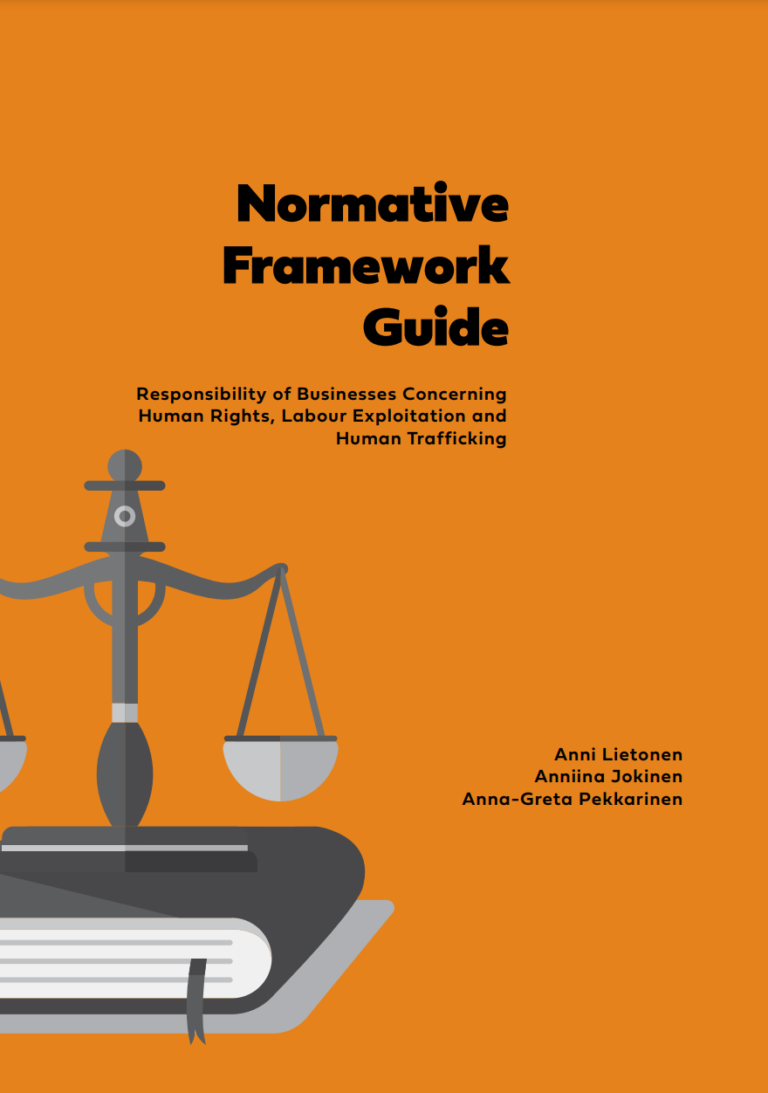This normative framework guide provides a summarized overview of existing legal frameworks outlining businesses’ responsibilities with regard to human rights, with a focus on labour exploitation and trafficking in human beings. Various legal frameworks applicable in this field already exist and not all of them are outlined in-depth in this publication. The aim of the guide is to fill in knowledge gaps concerning the main legal and non-legal standards, principles and current trends on which companies ought to build their activities regarding social responsibility and human rights. This guide has been developed in the context of the EU-funded FLOW-project, and it is meant to be read alongside the “Navigate through your supply chains – Toolkit for prevention of labour exploitation and trafficking” developed as part of the same project. The toolkit is a resource for businesses that want to take steps to address and minimize the risk of labour exploitation and trafficking in their operations.

